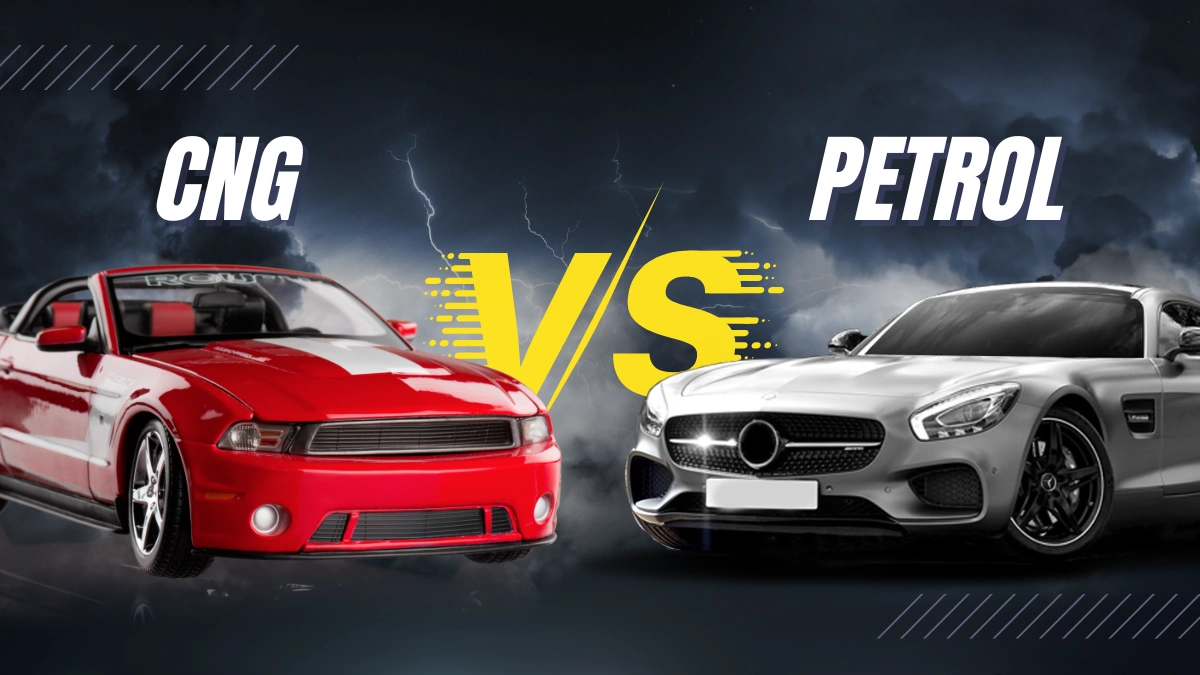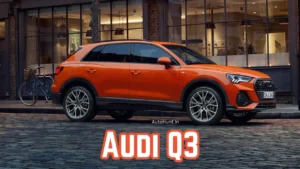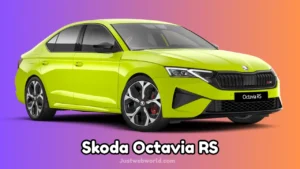If you’re wondering whether to buy a CNG or petrol car in 2025, you’re not alone. With rising fuel prices, growing environmental concerns, and new car technologies, choosing the right fuel type can feel overwhelming.
Here’s the short answer: CNG cars are better for saving money and reducing pollution, while petrol cars offer better performance and convenience. But the decision depends on your driving habits, location, and priorities.

In this beginner-friendly guide, we’ll break down everything you need to know in a super simple and helpful way. Let’s dive right in.
What Are CNG and Petrol Cars?
Understanding the Basics
CNG cars run on Compressed Natural Gas, which is cleaner, more economical, and emits fewer pollutants. These vehicles store gas in high-pressure tanks and use a modified engine to burn fuel efficiently.
Petrol cars, on the other hand, use traditional gasoline. They’re known for better pickup, higher performance, and widespread fuel availability.
This basic difference between CNG and petrol car systems influences their cost, mileage, maintenance, and long-term value.
CNG vs Petrol Cars – Detailed Comparison Table
| Category | CNG Cars | Petrol Cars |
|---|---|---|
| Fuel Type | Compressed Natural Gas (CNG) | Unleaded Petrol (Gasoline) |
| Fuel Cost (₹/KM) | ₹2.0 – ₹2.5 | ₹6.5 – ₹8.0 |
| Mileage (City/Highway) | 25 – 32 KM/KG | 15 – 20 KM/L |
| Initial Purchase Cost | Higher by ₹90,000 – ₹1.3 Lakhs (compared to petrol variant). | Lower than CNG variants |
| Running Cost (Per Month) | ₹2,400 – ₹3,200 (for 1,200 KM/month). | ₹7,200 – ₹9,600 (for 1,200 KM/month). |
| Performance (Pickup/Speed) | Slightly lower pickup and torque. | Better pickup, smoother acceleration. |
| Engine Wear & Tear | Slightly more due to dry combustion. | Less wear; petrol acts as natural lubricant. |
| Boot Space | Reduced due to CNG tank placement. | Full boot space available |
| Maintenance Frequency | Slightly more frequent (CNG kit, spark plugs, tuning). | Generally lower and less frequent. |
| Fuel Availability | Expanding in metro cities, limited in rural areas. | Widely available across India. |
| Emission Level | Very low (eco-friendly, green fuel). | Higher CO2 and NOx emissions. |
| Environmental Impact | Low carbon footprint | Moderate to high emissions. |
| Refueling Time | 5–10 minutes but depends on station queues. | 2–3 minutes, quick and easy. |
| Safety (2025 Standards) | Safe with factory-fitted CNG kits, equipped with safety shutoff valves. | Standard safety; no explosion risks from fuel tanks. |
| Government Incentives | Tax benefits in select states, lower registration in some cities. | None typically |
| Resale Value (Urban Areas) | Increasing demand, especially in metros. | Stable resale in all markets. |
| Ideal For | Daily city driving, budget-conscious users, environmentally aware buyers. | Highway drives, rural users, performance-focused buyers. |
Disclaimer: All information above is based on market averages, latest data from automotive manufacturers, and fuel price trends as of 2025. Actual mileage, fuel cost, maintenance, and performance may vary depending on vehicle brand, driving habits, road conditions, and regional pricing. Always consult a certified automobile dealer or mechanic before making your final decision.
CNG vs Petrol Running Cost – Which Saves More?
Real-World Cost Comparison
One of the biggest reasons people switch to CNG is the cost per kilometer. Let’s compare the fuel costs of both types:
-
CNG cars: ₹2 – ₹2.5/km
-
Petrol cars: ₹6 – ₹8/km.
Imagine you drive 1,200 km a month:
-
CNG car: ₹2,500/month
-
Petrol car: ₹7,000/month.
That’s a difference of ₹4,500 every month, or ₹54,000 per year! Over 3–4 years, you can recover the extra money spent on a CNG variant easily.
If you’re focused on saving fuel costs, this makes CNG the clear winner.
CNG vs Petrol Car Maintenance – What to Expect?
Cost, Service, and Long-Term Care
CNG cars do need a bit more attention:
-
Regular CNG kit inspections
-
More frequent spark plug changes
-
Slightly higher service costs
But these costs are manageable and modern CNG systems are safer and more reliable than ever before.
Petrol cars have simpler upkeep. Their engines are tuned for smoother, stress-free performance and need less frequent servicing.
So if ease of maintenance is your top priority, petrol might be more convenient.
CNG vs Petrol Car Performance – Which Drives Better?
Speed, Acceleration, and Pickup
Here’s where petrol takes the lead.
CNG cars offer smooth drives but slightly less acceleration and slower pickup—especially if you’re driving uphill or with the AC on.
Petrol cars are known for:
-
Better throttle response.
-
Faster gear shifts.
-
Smoother long-distance driving.
That said, CNG cars have improved in 2025 and are good enough for daily city use and moderate highway trips.
Still, for performance lovers or highway commuters, petrol is more enjoyable.
Boot Space and Practicality
Does the CNG Tank Take Up Too Much Room?
Yes, most CNG cars lose boot space due to the gas tank. You’ll have less room for luggage and might find it inconvenient during road trips or family travel.
Petrol cars offer full trunk space, which is a plus if you carry goods, bags, or strollers regularly.
Some newer CNG car designs in 2025 now optimize tank placement, but space is still reduced compared to petrol versions.
CNG vs Petrol for Daily Use and Long Drives
Which Works Best for Your Routine?
If you:
-
Commute daily
-
Travel more than 1,000 km per month.
-
Live in a metro city.
Then a CNG car is ideal for daily use. It’s budget-friendly, cleaner, and fits urban driving.
However, if you:
-
Drive occasionally.
-
Take frequent long road trips.
-
Live in a remote or hilly region.
Then a petrol car gives you better convenience and fuel availability.
Environmental Impact – CNG is Greener
Is CNG Better Than Petrol for the Planet?
Yes, CNG produces:
-
80% fewer pollutants.
-
Less carbon monoxide and nitrogen oxides.
-
Zero lead emissions.
This makes CNG an excellent choice for reducing your carbon footprint. In fact, the Indian government is supporting more CNG adoption in 2025 to reduce vehicular pollution.
CNG vs Petrol Car Price – Which Costs More?
Purchase Price Breakdown
CNG variants generally cost ₹90,000 to ₹1.3 lakhs more than their petrol counterparts.
Example:
-
Petrol hatchback: ₹6.5 lakhs.
-
Same model in CNG: ₹7.4 lakhs.
Though the upfront cost is higher, you recover this extra amount within 1–2 years through fuel savings if you drive regularly.
So, while petrol wins in initial affordability, CNG wins in long-term value.
Resale Value and Future Proofing
What About Resale in 3–5 Years?
As fuel prices increase and emissions rules tighten, CNG cars have stronger resale value—especially in urban regions.
But in areas where CNG stations are few, petrol cars remain in higher demand.
As of 2025, more buyers are seeking CNG-compatible vehicles due to fuel cost advantages, which means resale values are improving steadily.
Best CNG Cars in India 2025
Looking for the best picks? Here are the top-rated CNG cars in India right now:
-
Maruti Suzuki WagonR CNG – Reliable and efficient.
-
Tata Tiago iCNG – Sporty yet economical.
-
Hyundai Aura CNG – Sedan feel with CNG savings.
-
Maruti Suzuki Ertiga CNG – Perfect for families.
-
Hyundai Exter CNG – Stylish and feature-packed.
Best Petrol Cars in India 2025
If you prefer petrol, here are top options to consider:
-
Maruti Swift – Peppy and trusted.
-
Hyundai i20 – Stylish and premium.
-
Tata Punch – SUV-like feel in a compact body.
-
Honda Amaze – Reliable sedan with good mileage.
-
Kia Sonet – Bold design and loaded features.
Final Petrol vs CNG Comparison Table
| Feature | CNG Car | Petrol Car |
|---|---|---|
| Running Cost | ₹2–2.5/km | ₹6–8/km |
| Initial Cost | Higher | Lower |
| Mileage | 25–32 km/kg | 15–20 km/litre |
| Performance | Slightly lower | Better pickup |
| Boot Space | Reduced | Full trunk |
| Maintenance | Slightly more | Slightly less |
| Fuel Availability | Limited to urban areas | Widely available |
| Emissions | Low | Moderate |
| Resale Value (Urban) | Rising | Stable |
| Best For | Daily urban driving. | Occasional or performance use. |
Conclusion: Which Should You Choose?
Still wondering which is better — CNG or Petrol Cars in 2025?
Go for a CNG car if:
-
You drive more than 1,000 km/month.
-
You live in a city with good CNG infrastructure.
-
You care about savings and environment.
Go for a petrol car if:
-
You travel to remote or hilly areas.
-
You prioritize performance and convenience.
-
You drive occasionally and need more boot space.
Both options have their place — your perfect choice depends on how you plan to use the car.
FAQs – CNG vs Petrol Cars in 2025
Q1. Should I buy a CNG car or petrol car in 2025?
If you’re a daily commuter looking to save on fuel, a CNG car is the better choice. Petrol is better for low mileage users or highway travelers.
Q2. Is CNG better than petrol in India?
Yes, in cities with CNG stations, it offers better mileage and lower running costs.
Q3. What is the difference between CNG and petrol car?
CNG cars use compressed natural gas and are cheaper to run, while petrol cars use gasoline and offer better performance.
Q4. How is the mileage of CNG vs petrol cars?
CNG cars offer 25–32 km/kg while petrol cars offer around 15–20 km/l.
Q5. Which car gives better resale value, petrol or CNG?
In 2025, CNG cars have rising resale value in cities, but petrol cars are still strong in rural or less developed areas.
Q6. Is CNG car maintenance expensive?
Not really. It requires regular checks but the costs are manageable and justified by fuel savings.
Q7. Are CNG cars safe for long drives?
Yes, modern CNG cars are well-equipped and safe for highway use, though fuel station access can be a limitation.
Q8. Which is cheaper to buy — petrol or CNG car?
Petrol cars are cheaper upfront, but CNG cars save more in the long run.
Rahul Panchal, 25, is an automotive reviewer with a keen eye for detail and a passion for all things on wheels. Whether it’s cars or bikes, Rahul brings an expert touch to every review, diving deep into performance, design, and the driving experience. With a love for both speed and style, he provides insightful, honest, and engaging reviews that help readers make informed decisions. When he’s not testing out the latest models, Rahul is sharing his thoughts, fueling the excitement for fellow motor enthusiasts with his informative and lively reviews.












